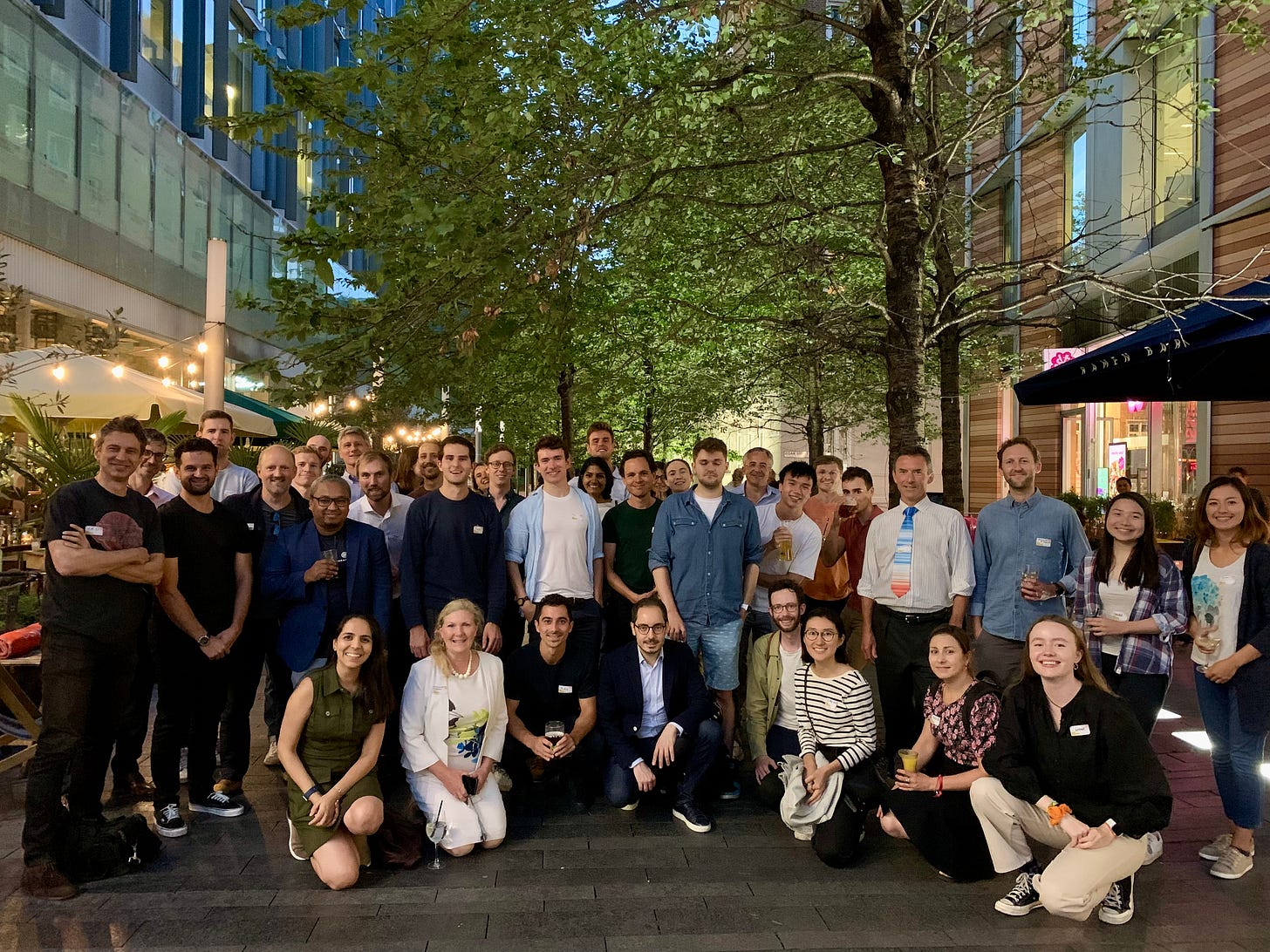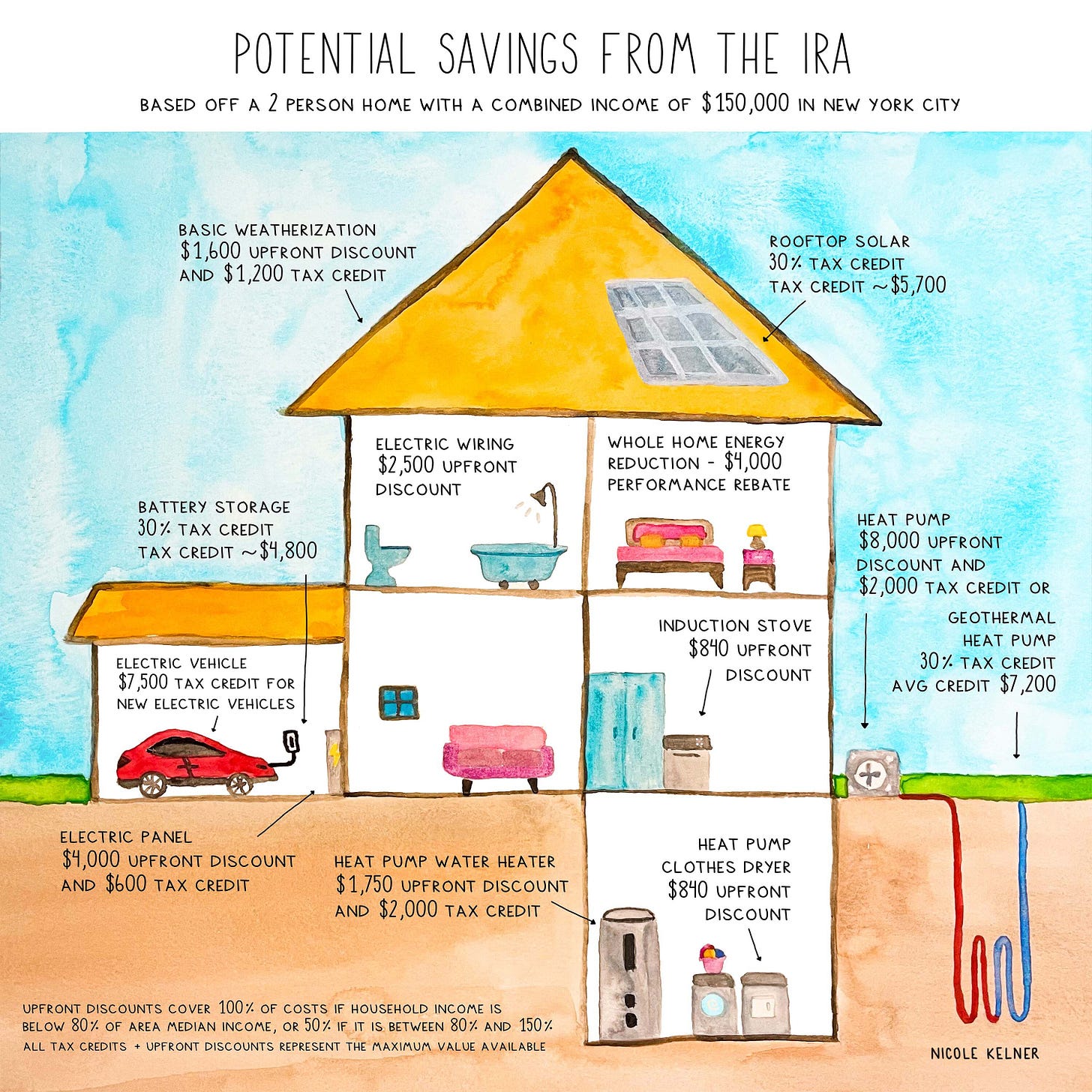The science & tech law that delivers hidden climate benefits
by Gabrielle Jorgensen, Advocacy Director & Co-Founder, Climate Changemakers
Climate change is a huge national security risk—and finally, the U.S. is starting to act like it.
The Department of Defense has been conducting climate risk assessments for a while now, but we hadn’t seen much acknowledgment of these risks from Congress until the CHIPS and Science Act of 2022. The threats that climate change poses to physical infrastructure and financial systems, while critically important, often obscure some of the more nebulous and sinister risks lurking just below the surface of popular discourse.
When Vladimir Putin invaded Ukraine in February, the West seemed to collectively jolt awake from a fossil fuel fever dream. Once the EU’s oil and gas supply was curtailed by its own sanctions on Russia, discussions of energy volatility and vulnerability rippled across the U.S. and Europe. Predictably, a lot of this conversation fell along partisan lines in the U.S. On the right, there were calls for increasing domestic oil and gas production to offset the absence of Russian fuel from the market; the left highlighted the urgent need to transition away from fossil fuels altogether.
As a climate advocate, I of course side with the left on this one—fossil fuels must be replaced as soon as logistically possible. But what’s often missing from the Democrats’ discourse is the reality that the clean energy transition doesn’t automatically relieve us of foreign energy dependence.
As the U.S. ramps up solar and wind generation, EV manufacturing, energy storage, and grid modernization, following a business-as-usual pathway will almost certainly lead us to switch our energy dependency from Russia to China. China currently dominates global solar manufacturing, lithium ion battery production (including mining for rare earth metals that aren’t easily found in the U.S., like cobalt), and was projected to lead global semiconductor manufacturing by 2030.
Enter the CHIPS and Science Act.
Designed to stop Chinese semiconductor ascendancy in its tracks, CHIPS authorizes billions of dollars toward onshore semiconductor manufacturing. Of course, reliance on semiconductor chips isn’t exclusive to the clean energy transition: they’re essential for most modern technology, including all “smart” devices. But the climate implications of this bill have been largely overshadowed by the historic investments made by the newly minted Inflation Reduction Act and the bipartisan Infrastructure Investment and Jobs Act before it. In addition to incentivizing semiconductor manufacturing that will benefit EVs, solar, smart grids, and energy storage, CHIPS authorizes around $80 billion per year in federal R&D that could help accelerate the clean energy transition. For a crisis that needs all the technological help it can get, this is a huge win.
Investments in machine learning are also a central focus of CHIPS. This, too, could be great news for climate progress. Artificial intelligence has seemingly endless applications for both mitigation and adaptation, like electricity demand response, improving energy efficiency in buildings and fuel efficiency in electric vehicles, or enhanced climate modeling and risk projection. And CHIPS authorizes additional funds for using AI to beef up cybersecurity, which is increasingly tied to energy security as we move toward more interconnected, software-dependent power grids.
The U.S. is still quite far from meeting its emissions targets, and globally, the chances of limiting warming to 1.5 C are fading. But the combination of CHIPS, the bipartisan infrastructure bill, and the IRA signify a promising new era in which the economic, security, and geopolitical incentives to accelerate the clean energy transition are starting to converge in the eyes of policymakers. The more common ground we can find across the political spectrum, the faster we can start to make up for decades of climate inaction.
✍️ The Draw-down
Weekly climate art by our MCJ Artist-in-Residence, Nicole Kelner.
📢 Climate Action of the Week
Want to do more? Sign up for the next Climate Changemakers Hour of Action here.
Our slate of East Coast Climate Candidates need your help before the midterms! Drop links on the social media platform of your choice to raise awareness about our key climate races in PA, NH, NY, VA, and NC.
🍿 The Lean Back
Learn about Newlight Technologies in the latest Pique Action film.
🎙My Climate Journey Podcast
🏭 Jason talked with Rebecca Dell, Senior Program Director Industry at ClimateWorks Foundation, about why people say industries are notoriously "hard to decarbonize," what aspects make them difficult, how we can accelerate decarbonization and what we should do in the meantime.
⛏ Cody caught up with Moji Karimi, CEO and Co-Founder of Cemvita Factory about biomining for lithium and copper, subsurface biochemical production, including gold hydrogen, and biomanufacturing of waste carbon dioxide into other end products.
✨ Highlights

💥 Starting on Wednesday 7th August at 9am PST / 12pm EST / 5pm BST, Alex will be answering your questions asynchronously in our AMA channel for 24 hours. Set your reminders, and get your questions ready!
👩💻 Climate Jobs
For more open positions, check out the #j-climatejobs channel in MCJ Slack as well as past newsletters.
Afresh is seeking a Vice President (VP) of People to shape the vision and strategic direction of the company’s culture. (San Francisco, CA)
Artyc is hiring a Mechanical Engineer to help decarbonize cold chain logistics. (Bay Area, CA)
Breakthrough Energy is hiring an Investment Associate to join as a key member of their Catalyst Project Finance team.
Charge Robotics is looking for a Mechanical Engineer to help the ground-up development for a new robotic system that assembles solar farms. (Oakland, CA)
Deep Science Ventures is seeking a Co-founder to help develop a next-generation capture and sequestration venture. (Remote)
FutureProof is hiring a Senior Data Science Manager to help build analytics for insurance pricing as they work to create climate-smart insurance products. (Remote)
OnePointFive is looking for a Digital Associate and Content Specialist to play a critical role in accelerating the decarbonization of our economy. (Remote)
Project Drawdown is hiring a Program Manager to join the Drawdown Labs team and help them launch a new network of climate philanthropists and investors. (Remote)
Waterplan is hiring a Senior Enterprise Account Executive to help accelerate the transition to a water secure world. (Remote)
🗓 September Events
For more climate events, check out the #c-events channel in MCJ Slack.
👋 MCJ Community Welcome Call: Connect, share and learn with other MCJ-ers. (9/08)
📝 Cover Letter Workshop: Ian Murphy will walk attendees through tips and best practices for an impactful cover letter. (9/13)
🤝 MCJ Career Transitions Meetup: Casual monthly event designed to build a network of individuals who can learn from and support each other into their new roles. (9/21)
🍻 Seattle MCJ x WorkOnClimate Meetup: For folks in the area who want to connect around climate solutions. (9/21)
🧠 MCJ Monthly Idea Jam! This month, our focus is on: Mobility & Transport. Come along, listen, and share your thoughts. (9/23)
MCJ Climate Voices is a free weekly email curating news, jobs, My Climate Journey podcast episodes, and other noteworthy happenings in the MCJ member community.
💭 If you have feedback or items you’d like to include, feel free to reach out.
🤝 If you’d like to become an MCJ community member, apply today.



